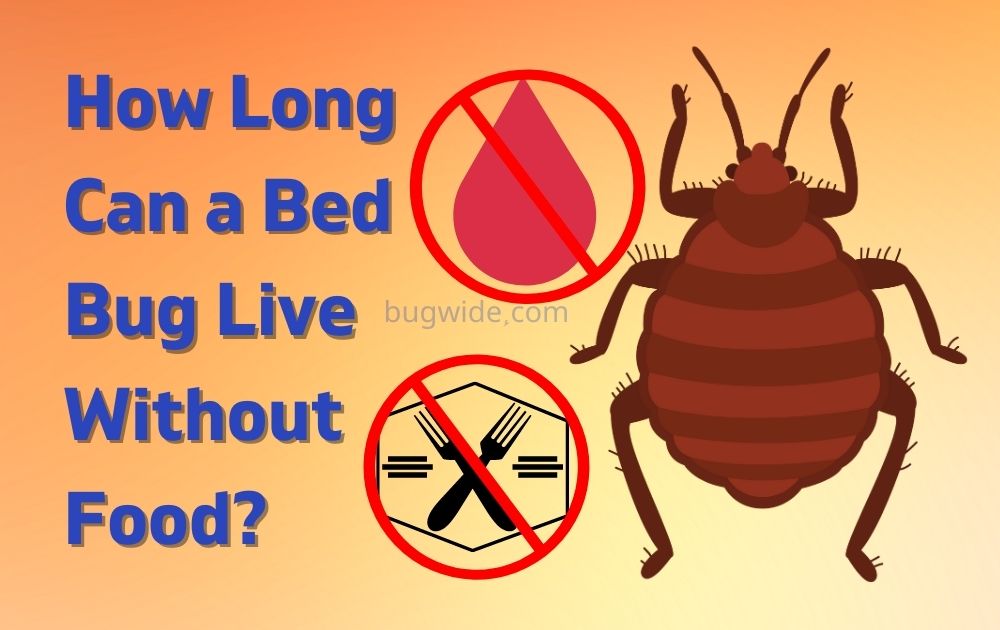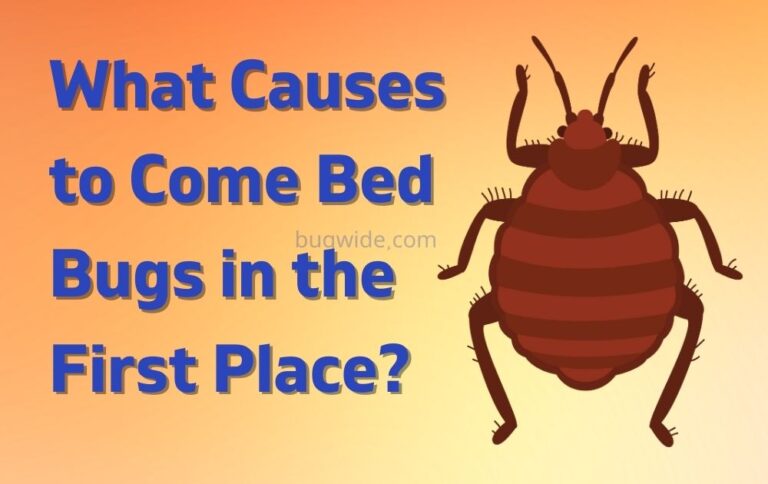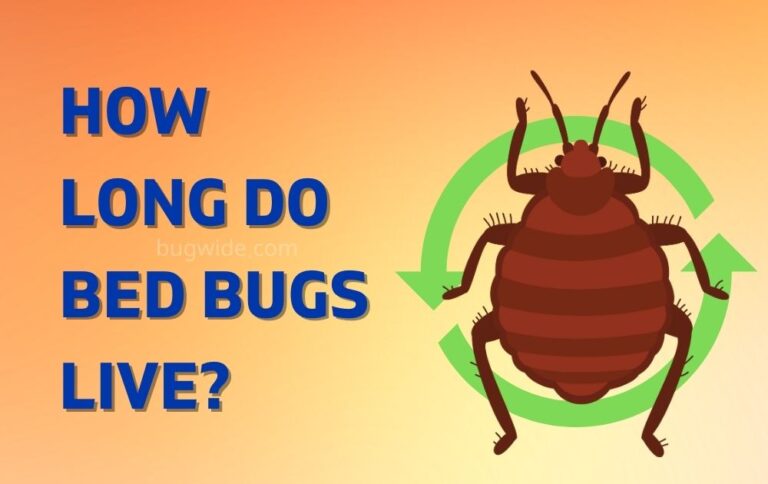How Long Can a Bed Bug Live Without Food? [Tolerance]

Hey there! I bet you, like most of us, find bed bugs super gross, right? But have you ever stopped to think about how long these tiny critters can survive without food? Bed bugs can be a real pain, causing itchy bites and spreading fast. They can also live in a variety of places, making them hard to eliminate.
One question that often pops up about bed bugs is, how long can a bed bug be without food? Well, if that’s something you’ve been curious about, you’ve come to the right place.
In this informative read, we’re diving into the world of bed bugs to find out just how long they can survive without chowing down. We’ll look at the different factors that impact their starvation resilience and see how long they can hold out in different conditions.
And here’s a fun fact – not all bed bug stages are created equal when it comes to starvation! We’ll also compare their resilience levels and discuss the impact regular meals have on their lifespan.
By the end of this post, you’ll be a bed bug expert, equipped with the knowledge to effectively tackle these pests. So, are you ready to uncover the truth about bed bug survival? Let’s get started!
Bed bugs can survive for several months without food, but the length of their survival depends on temperature, humidity, and access to water. Older nymphs and adults have a higher tolerance for starvation and can survive without food for over 400 days in favorable conditions. However, this may not reflect real-world scenarios, and regular access to food can significantly extend their lifespan.
We will also compare the resilience of different bed bug stages and discuss the impact that regular access to food has on their lifespan. By the end of this post, you will have a deeper understanding of these persistent pests and be equipped with the knowledge necessary to effectively combat them.
What do bed bugs eat and how do they feed?
Ugh, bed bugs. The thought of these little bloodsuckers is enough to make anyone’s skin crawl. They’re known for piercing our skin with their long beaks and draining our blood – talk about a horror movie come to life! And get this, one-bed bug can guzzle down up to seven times its own weight in blood.
But here’s the thing, Bed bugs have been around for centuries and can be found all over the world. They’re most active at night but can also come out during the day if they’re disturbed. After a good meal, these pests love to hide out, and their hiding spots can be anywhere in a room – think behind baseboards, in mattresses, or in furniture cracks.
So, how long can bed bugs survive without a meal? Well, they can go without food for several months, but typically won’t make it past a year without a steady supply of blood. Yikes!
How Long Can a Bed Bug Live Without Food?
We conduct a little research and found that bed bugs can actually survive for several months without eating. Bed bugs can live about 20 to 400 days as per the harshness of the environment.
So next time you see one of these pests, don’t be so quick to squish it! However, they will often die sooner if they do not have access to a host. Bed bugs typically live for about one year.
Factors That Influence Bed Bug Survival Without Food:
Several factors can influence bed bug survival without food:
- Temperature: Bed bugs are adapted to live in a temperature range of 70-80°F, and they are unable to survive in extreme temperatures. In cooler temperatures, they can slow down their metabolism and survive longer without food. On the other hand, in warm temperatures, they tend to be more active and will require more food to survive.
- Humidity: Bed bugs need a relative humidity of around 50% to survive, and low humidity can negatively impact their survival. High humidity levels can reduce the drying out of bed bugs, allowing them to survive longer. On the other hand, low humidity levels can cause bed bugs to dry out and die more quickly.
- Life stage: Young bed bug nymphs are more susceptible to dehydration and starvation compared to adult bed bugs. Nymphs, or young bed bugs, need to feed more frequently than adult bed bugs. This is because they are still growing and require more nutrients to support their development.
- Population density: Bed bugs can survive for longer periods without food in areas with high population densities, where they can feed on one another.
- Presence of other hosts: Bed bugs can feed on other hosts besides humans, such as birds or bats, which can prolong their survival without food.
Can bed bugs survive without a host?
Yes, bed bugs can survive without a host for long periods of time. They are able to do this by slowing down their metabolism and conserving energy. However, it is important to note that bed bugs do require a host to feed on in order to complete their life cycle. Without a host, bed bugs will eventually die.
FAQ’s
Bed bugs can reproduce without feeding, but it is important to note that feeding is essential for their survival and reproduction. Without a food source, bed bugs will not be able to lay eggs and their population will not grow. While they are able to survive without feeding for long periods of time, they will eventually die off if they do not have access to a food source. In order to multiply, bed bugs require a host to feed on, which provides them with the necessary energy and nutrients to lay eggs and grow their population.
Bed bugs typically feed every 5-10 days, but they can survive for several months without feeding.
If a bed bug doesn’t get enough food, it will become weak and eventually die.
The survival time of bed bugs in an empty house depends on various factors such as temperature, humidity, and availability of food sources. In ideal conditions, bed bugs can survive for several months without a host. However, if the conditions in the empty house are not favorable, such as extreme temperatures or low humidity, the bed bugs may not survive as long. It is important to note that even if a house is empty, bed bugs can still hide in cracks and crevices and may resurface when a new host is present.
Summary:
Bed bugs’ ability to survive without food is determined by various elements such as temperature, humidity, and the presence of a host. Although they can withstand long periods without feeding, eventually they will perish if they don’t have a source of sustenance.
If you think you might have bed bugs in your home, don’t wait! Time is of the essence when it comes to these pests. Seeking professional assistance is key to effectively controlling and preventing bed bug populations. So, don’t let these creepy crawlers take over your space, take action today!
Understanding “How Long Can a Bed Bug Live Without Food?” is essential in comprehending bed bugs’ life cycle and managing infestations effectively. By knowing their limit of survival without food, we can take the necessary steps to control and prevent bed bug populations. It is crucial to act promptly to avoid the spread of bed bugs and to seek professional assistance if an infestation is suspected.


![What Attracts Bed Bugs Most? [5 Things In Homes]](https://lyssfits.com/wp-content/uploads/2022/12/What-Attracts-Bedbugs-Most-Answered-768x484.jpg)

![What Do Dead Bed Bugs Look Like? [With Pictures]](https://lyssfits.com/wp-content/uploads/2022/12/What-Do-Dead-Bed-Bugs-Look-Like_-Explained-768x484.jpg)
![Can Bed Bugs Go In Your Private Parts? [Explained]](https://lyssfits.com/wp-content/uploads/2022/12/can-bed-bugs-go-in-your-private-parts_-Explained-768x484.jpg)